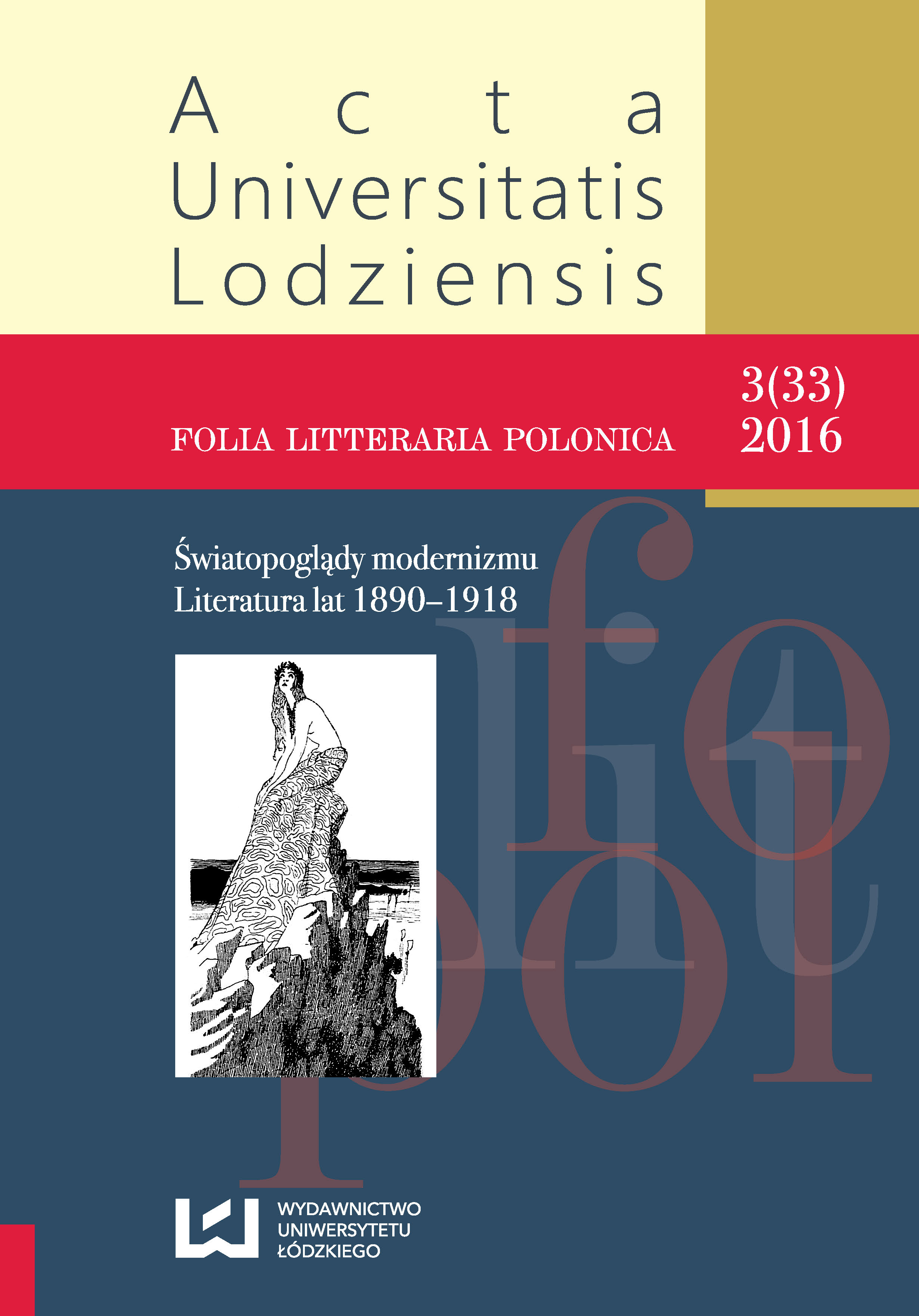Syndrom Charouska. Tomasza Judyma problemy z tożsamością
Charousek’s syndrome. Tomasz Judym’s Problems with Identity
Author(s): Dorota Samborska-KukućSubject(s): Polish Literature, Substance abuse and addiction, Theory of Literature
Published by: Wydawnictwo Uniwersytetu Łódzkiego
Keywords: Stefan Żeromski; Ludzie bezdomni; Gustav Meyrink; Golem; ACoA syndrome;
Summary/Abstract: In literary studies, Judym, the protagonist of Ludzie bezdomni, is usually treated as a social activist fixated on the mission to improve the world. However, such interpretation is not exhaustive because the character’s behaviour, not always rational and sensible, is a result of his beliefs and worldview. His identity problems, which pose the principal difficulty for him and which are the driving force of his actions, are rooted in his inferiority complex, born and developed on the foundation of his dysfunctional upbringing with an alcoholic father and later his aunt, a prostitute. Aversion to his familial heritage makes Judym a profoundly emotionally repressed man, unable to cope with life and emotional relationships. Understanding these difficulties helps readers to see the character’s alienation and motivations, which he would like to be considered as “paying the debt” he owes to the social group from which he came.
Journal: Acta Universitatis Lodziensis. Folia Litteraria Polonica
- Issue Year: 33/2016
- Issue No: 3
- Page Range: 155-170
- Page Count: 16
- Language: Polish

